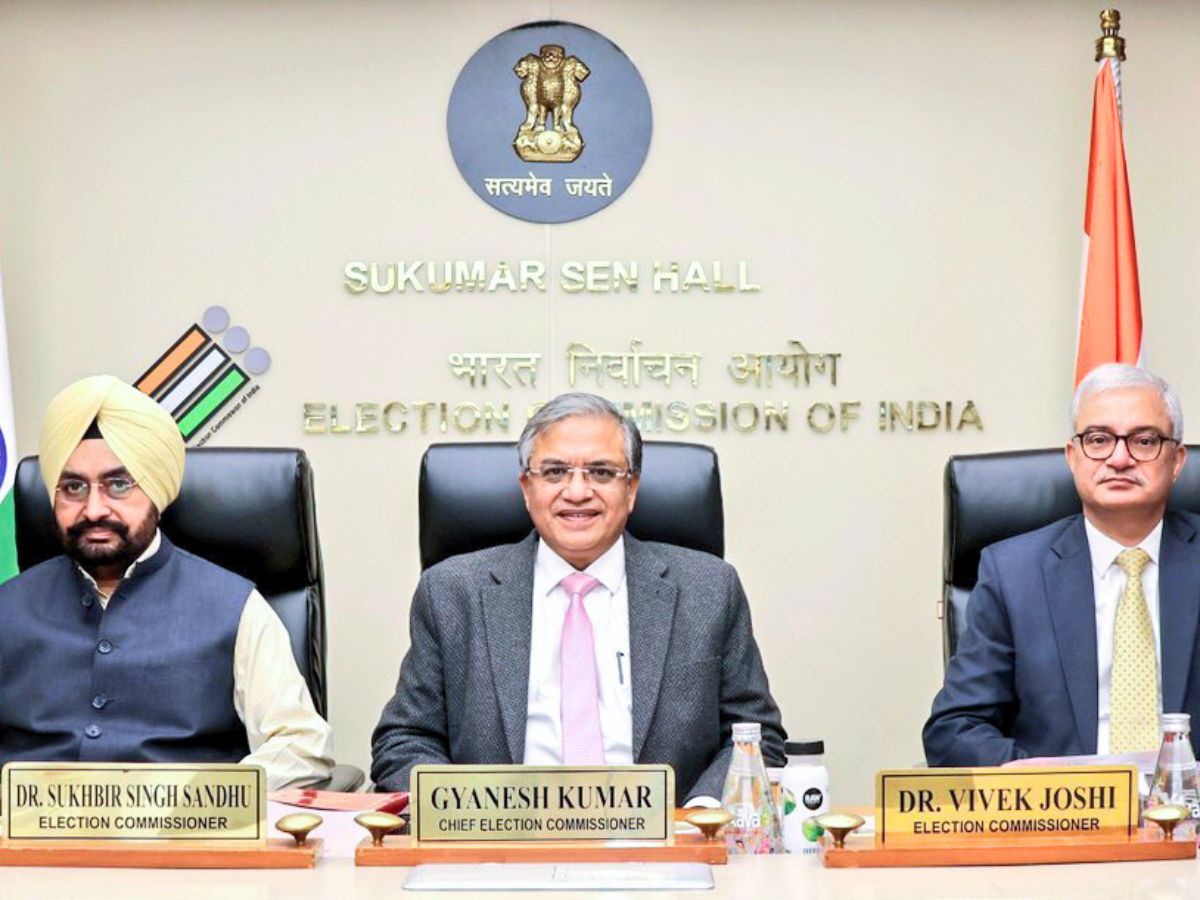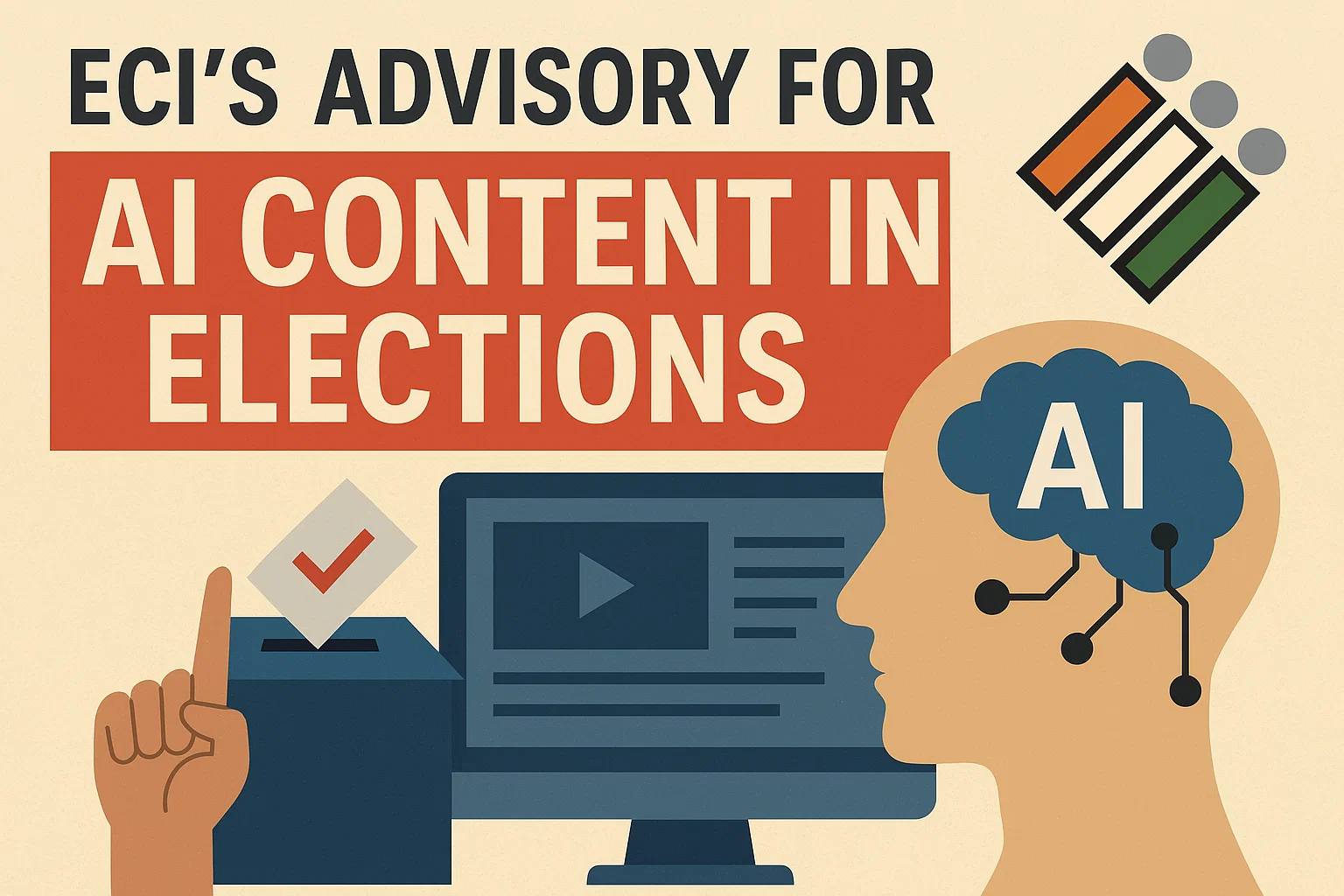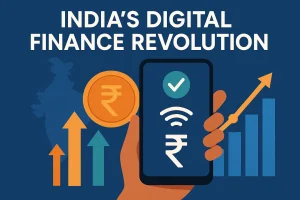ECI’s Advisory for AI Content in Elections
Learn about the Election Commission of India’s 2025 advisory on AI-generated content in elections. Understand new deepfake disclosure rules, compliance norms, and digital ethics for political parties.
Context
Ahead of the Bihar Assembly Election 2025, the Election Commission of India (ECI) has released a crucial advisory on the responsible use of Artificial Intelligence (AI) in political campaigns. This step comes amid growing concerns over deepfakes, synthetic media, and misinformation that could distort electoral integrity. The advisory builds upon earlier social media guidelines, ensuring that emerging technologies are used ethically, transparently, and in compliance with Indian law.

What are the guidelines by the Election Commission (ECI) against misuse of AI during elections?
1. Mandatory Labelling & Disclosure
The ECI now requires all AI-generated or AI-altered images, audios, and videos to carry a clear and visible tag such as “AI-Generated” or “Digitally Altered” covering at least 10% of the visible area or the initial duration in case of audio clips.
-
This ensures voters can distinguish between real and synthetic content.
-
Details of the creator, political party, or entity must be disclosed in metadata or captions accompanying the content.
2. Compliance & Accountability
-
Political parties must strictly adhere to the IT Rules, 2021 and earlier ECI advisories (January 2025 & May 2024).
-
Misleading deepfakes that manipulate identity, voice, or appearance are prohibited under the new norms.
-
Any violative content posted on official social media handles must be removed within three hours of receiving notice from the ECI.
-
Parties must maintain internal records of all AI-generated campaign material for audit and verification.
These measures uphold a level playing field and prevent hyper-realistic synthetic media from influencing public perception — a responsibility enshrined under Article 324 of the Constitution, which empowers the ECI to ensure free and fair elections.
How does this complement earlier Social Media Ethics Rules?
In 2024, the ECI had issued social media ethics guidelines emphasizing responsible and transparent use of digital platforms during the Model Code of Conduct (MCC) period in general elections. The 2025 AI advisory extends and strengthens this framework to address the new challenges of AI-generated misinformation.
The new advisory enhances earlier rules by:
-
Adding traceability and transparency: Ensuring AI-generated content includes identifiable metadata, aligning with the Ministry of Electronics and IT (MeitY) framework on deepfake detection and prevention.
-
Strengthening grievance redressal: Building rapid coordination mechanisms between political parties and digital platforms for faster takedown of harmful or misleading content.
-
Supporting Digital Information Integrity: Responding to the rising number of deepfake incidents during the 2024 General Elections, as highlighted in ECI’s reports and government communications.
Legal and Regulatory Framework
The advisory functions in synergy with India’s broader digital and electoral legal framework, ensuring that misuse of AI or synthetic media is addressed across multiple laws and codes, including:
-
Information Technology Act, 2000
-
Information Technology (Intermediary Guidelines and Digital Media Ethics Code) Rules, 2021
-
Indian Penal Code (IPC) – penalizing impersonation and misinformation
-
Representation of the People Acts, 1950 and 1951 – ensuring electoral transparency
-
Model Code of Conduct (MCC) – ethical campaigning standards
Together, these frameworks build a robust digital governance ecosystem that protects electoral integrity while allowing the ethical use of technology in modern political communication.
Conclusion
The Election Commission’s AI Advisory 2025 marks a decisive step toward safeguarding Indian democracy in the age of synthetic media and AI-driven content. By mandating clear disclosure, accountability, and rapid response, the ECI aims to prevent voter manipulation and uphold transparency during elections. As India heads into the Bihar Assembly Election 2025, these measures ensure that technology serves democracy—not distorts it. The advisory reflects India’s proactive regulatory approach to balancing innovation, ethics, and electoral fairness in a rapidly evolving digital era.
Subscribe to our Youtube Channel for more Valuable Content – TheStudyias
Download the App to Subscribe to our Courses – Thestudyias
The Source’s Authority and Ownership of the Article is Claimed By THE STUDY IAS BY MANIKANT SINGH





